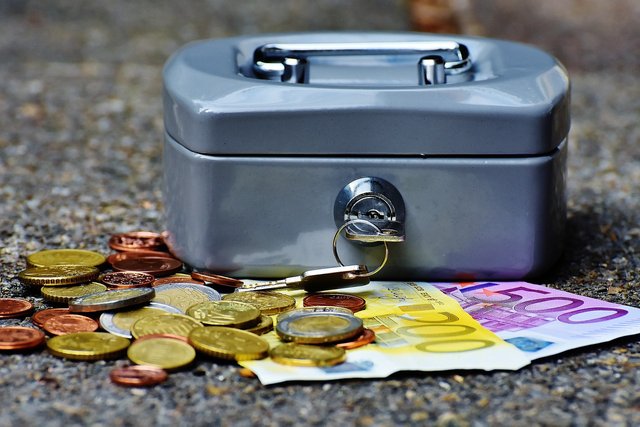Why does saving money lose value? a necessary reflection
Hello, friends of the PussFi community, good day everyone. Today I want to bring you a topic that I find very important and that is becoming increasingly relevant in our lives: the need to learn how to invest. Look, it's not about being financial experts or spending all day glued to the stock market, but rather about understanding something that is very obvious and that, if we ignore it, sooner or later will take its toll: money, stored as is in cash, loses value over time. I'll share some personal examples so you can see why this is becoming more and more relevant, at least for me.

I'll share a very clear example from my own experience. About eight years ago, when I arrived in Colombia, a liter of milk cost around 1,500 pesos. Today, that same liter costs nearly 6,000 pesos. That's four times more. Imagine if back then I had saved a sum of money in pesos, believing I'd have it secure for the future. Well, no, the truth is that that money would have devalued over time, and what used to go a long way is now worth very little. That's the big problem with keeping cash, especially in currencies like the Colombian peso, which depend not only on the national economy but also on the behavior of the dollar.
And be careful with this, because the dollar itself, which for decades was considered the strongest currency, also loses value. With inflation, issuance policies, and all the global economic factors, what you could buy a few years ago with a dollar is much less today. So if the dollar loses value, imagine what happens with weaker currencies.

Now, let me give you another example that I find brutal. In 2018, gold cost around $1,300 an ounce. Today, that same gold is close to $3,650. In other words, it not only retained its value, but practically tripled it. If someone had decided to buy gold back then instead of keeping it in cash, they would be seeing their investment not depreciate, but multiply.
The same is true of Bitcoin. At the end of 2018, this cryptocurrency was hovering around $3,000 or $4,000 per unit. Many said it was an experiment, that it had no future, that it wouldn't last. However, today, despite its volatility, Bitcoin has occasionally surpassed $120,000 and remains in a much higher range than it was six or seven years ago. In other words, anyone who had invested even a small amount back then would have multiplied their money today in ways they never would have achieved by storing it in pesos or dollars.
I know that for many this may sound complicated, even far-fetched, but it's really not that far-fetched. Investing doesn't always mean having millions; it means learning to protect what you have, even if it's just a little. There are different ways to do it: gold, real estate, stocks, cryptocurrencies... each with its risks, of course, but all with one thing in common: they beat simply leaving money alone and watching it lose value day after day.

The problem is that many of us grew up with the idea that "saving" was the same as "securing," but the reality is that traditional savings are no longer enough. The real challenge lies in educating ourselves financially, understanding what alternatives exist, and taking small steps to make our money work for us. It's not about getting rich overnight; it's about not getting poorer over time without even realizing it.
So, friends, I'll leave you with this thought. Savings lose value, but if we move it wisely, it can grow. The world changes, currencies devalue, but those who learn to invest manage to keep their resources alive. And that, I believe, is one of the best decisions we can make for our future, don't you think?


https://x.com/josevas217/status/1969745418058866929?t=x6P89E21nDBL9LngA-N2Eg&s=19
https://x.com/josevas217/status/1969744766318321873?t=9sDlbgvSrszEJo28Tbzy1A&s=19
https://x.com/josevas217/status/1969744187131089034?t=5hstkYU6k9y5I9xYOG2whQ&s=19
Note:-
Regards,
@adeljose